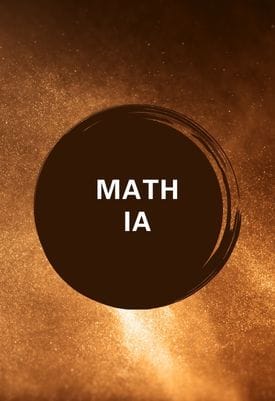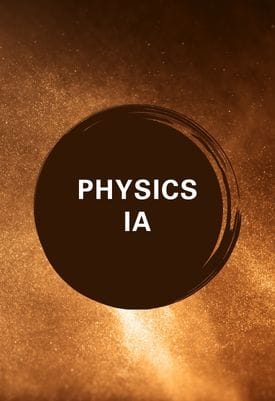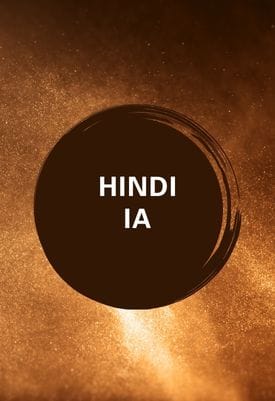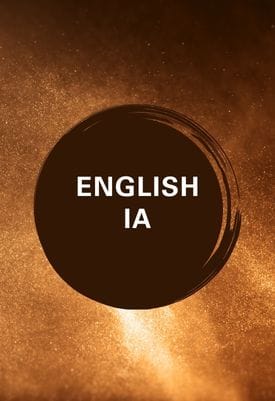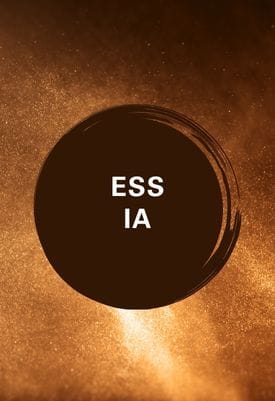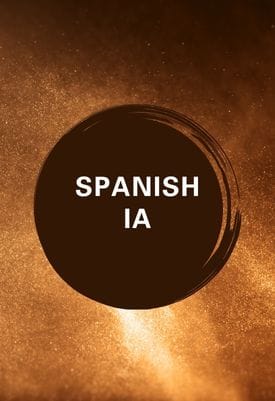IB IA Tuition
The Internal Assessment (IA) is a vital component of your IB Diploma, and we have mastered the process to help you succeed.
IB IA Tutors and the Moderation of Internal Assessments
Internal Assessments (IA) are evaluated using specific criteria and are graded internally by course instructors. The IB then selects a sample of these IAs from each class and sends them to IB Examiners worldwide for “moderation.” Moderation involves verifying the accuracy of the internal grading by reviewing the sample IAs. The examiner assigns a final mark based on the criteria, which may vary depending on the course. While instructors grade the IAs, the final mark awarded to students is the one assigned by the moderator. All students receive their grades based on this process.
For example, if an instructor internally assigns a score of 20, and the moderator adjusts it to 18, all students with an internal score of 20 will receive 18. Experienced IB IA tutors, familiar with the moderation process, tend to be highly accurate in their grading, and moderators often confirm their marks with minimal adjustments. However, moderators must thoroughly review the work when internal grading is done by less experienced teachers or those not adhering to IB IA criteria.
In cases of poor internal grading, where inflated scores are given, moderators must reassess the work in detail. Unfortunately, if the entire sample suffers from flawed marking, students may be penalized during moderation.
The Distinctive Nature of IB Internal Assessments (IA)
The IA forms a unique collaboration between the student, instructor, and IB examiner. Although the examiner never interacts directly with the student or instructor, all parties work from the same set of criteria when constructing, guiding, and evaluating the final product. A key feature of the IA is that students, instructors, and schools have significant control over its outcome.
When the instructor is competent, the student is motivated, and the right resources are available, the IA marks tend to be high. This shared control creates an environment where a well-guided project often leads to stronger results. However, the reliance on this alignment can be a double-edged sword; if any one of these factors is lacking—such as limited resources or less effective instruction—the final grade may suffer.
In contrast, the results of IB exams are less controllable, as they depend more on how comprehensively the material is covered and how well students develop their test-taking skills.
Key Challenges Unlike
Unlike IB exams, where students do not know the exact questions in advance, both students and instructors are fully aware of the IA criteria. The challenge, therefore, lies in producing a high-quality IA rather than trying to predict exam questions. Since the IA typically accounts for 20% to 40% of a subject’s final grade, it is essential for students and instructors to aim for the best possible marks to compensate for any difficulties that might arise on the final IB exams.
Top public and private IB schools generally maintain consistent quality in their IA samples, often leading to high marks on internally assessed work. IB Coordinators play a crucial role in ensuring internal consistency and strong performance across all submitted samples. High IA scores tend to correlate with strong exam performance and a higher Diploma pass rate, making the IA a reliable indicator of the overall quality of the IB Diploma Program. In contrast, schools outside this top tier often show more variation in the quality of IA samples from one class to another.
Variability in IB IA Scores
IA scores can vary significantly between subjects within a school. For instance, the average IA score in IB Higher Level (HL) Theater Arts may be a 6 in a given year, while IB HL Physics may only have an average score of 3. This variation can be attributed to factors like the nature of the subject itself. However, it is often the expertise and experience of the teacher that plays a crucial role. Competent and knowledgeable IB teachers tend to produce consistently high IA scores, while less experienced or less knowledgeable teachers may struggle, leading to sub-par scores. Many students fail to receive their diploma due to poor IA performance in specific subjects.
Top Tips from IB IA Tutors
- Know the Criteria: All IAs are graded based on specific criteria, with points awarded according to mark bands. To score top points, students must fully meet the set criteria. Familiarize yourself with the criteria for your course from the IB Subject Guides and review your work regularly to ensure all requirements are being met. Our IB IA tutors can help you optimize your work for the best possible grades.
- Carefully Choose Your Topic: If you have the freedom to select your IA topic, do so thoughtfully. Examiners often see the same topics year after year. While originality itself doesn’t earn points, a fresh and dynamic inquiry stands out. Avoid generic or recycled topics, as creative and well-constructed inquiries are more likely to impress examiners. If you need assistance with topic selection and analysis, our IB IA tutors can provide guidance.
Start Early with IB IA Tutors
- Begin Your IA Early: Our IB IA tutors advise starting your IA early, ideally before your instructor asks you to begin. Data collection and portfolio creation take time, and starting late can result in rushed work. It’s a good idea to begin in your junior year and complete most of the work over the summer before your senior year.
- Personalize Your IA: Whenever possible, infuse your IA with your personal interest and passion. Convey enthusiasm in your writing, presentation, or project, no matter the subject. Engaging with the topic on a personal level will help you stand out and make a stronger impression on the examiner.
Additional Tips from IB IA Tutors
-
Treat the IA as an Open-Ended Inquiry
Our IB IA tutors recommend viewing your IA as an open-ended investigation rather than one with a predetermined conclusion. It’s essential to have a clear focus, but don’t feel pressured to reach a final conclusion before collecting and analyzing your data. Your findings should emerge through the inquiry process. -
Craft a Strong Hypothesis or Thesis
Most IAs, whether written or oral, require you to develop a thesis or hypothesis before starting your investigation. Ensure that your foundational statement allows for a meaningful exploration rather than a dead-end pursuit. For example, attempting to definitively solve historical mysteries or predict large-scale global phenomena is unrealistic. Be open to disproving your initial theory—some of the best IAs challenge existing beliefs or reveal new insights. Our IB tutors can help guide you through this process. -
Seek Help When Needed
If you feel stuck, don’t hesitate to ask for assistance. It’s easy to get too immersed in your IA and overlook obvious solutions. An objective second opinion from a teacher or peer can help you avoid isolation and ensure you stay on track.
Managing Bias
While bias is natural, it’s important to control it throughout your investigation. Avoid letting personal opinions influence your analysis. For instance, if your World Religions paper clearly favors one religion, or if you criticize Shakespeare in an Individual Oral Commentary because of personal dislike, you risk losing points. Keep your inquiry empirical and objective. Our IB IA tutors can help you maintain balance and professionalism in your work.
Using IA Templates
Leverage IA Templates Chances are, your IB teacher has access to successful IA examples from previous years. Study these examples to understand what works and what doesn’t. Additionally, your teacher can access “Exemplars” from the IB Online Curriculum Center, which include Moderator Comments that show how points are awarded or lost. Our IB IA tutors can guide you through analyzing these templates to strengthen your own IA.
Visual Presentation of the IB IA
The visual and oral presentation of your IA plays a crucial role in achieving a high score. Whether you are submitting a paper, portfolio, project, or Group 4 experiment, ensure that your work is polished and professional. A well-presented IA, akin to publication quality, greatly enhances your chances of securing a top grade. For oral presentations, like the Individual Oral Commentary (IOC) in Groups 1 and 2, a strong stylistic delivery can make a big difference. Go ahead and aim for that perfect “7” on your IA! Additionally, here are 200 suggested IB IA topics for Mathematics. You can also seek free guidance from our IB Maths Tutors for both HL and SL topics.
IB IA Support from Tutors
The core aim of all International Baccalaureate (IB) programs is to cultivate a global perspective by providing an internationally recognized standard of education. Our IB IA Tutors focus on developing intellectual, emotional, and social skills necessary for success in an increasingly globalized world. IB programs encourage both academic and personal achievements.
Here are some key ways our IB IA Tutors can assist:
- Help create a structured IB IA format for all IB subjects
- Support with IB Math SL IA outlines and worksheets
- Provide IB Math SL IA examples, ideas, and structures with guidance from our IB Maths IA Tutors
- Share effective Math IA tips and examples, including templates for statistics, Math SL, and Math HL IAs
- Offer guidance from IB Chemistry Online Tutors for Chemistry IA formats
- Assist with IB Biology IA formats for 2019 and 2020
- Provide support from IB Physics IA Tutors for both HL and SL physics IA formats
- Access a range of IB Books to explore IB IA ideas and concepts
What is Internal Assessment
Internal Assessment (IA) is a subject-specific evaluation that every International Baccalaureate (IB) student must complete. It involves selecting a unique topic, conducting research, experimenting, and analyzing the results in a well-structured document. Students are required to explain their findings in their own words, incorporating relevant examples. IB offers a variety of subjects such as History, Math, Science, and Geography, from which students must choose a topic they can personally relate to, allowing them to put forth their best effort. IB IA Tutors recommend avoiding general topics and choosing something distinctive to stand out. The IA is assessed internally by the teacher and externally moderated by the IB Board.
Importance of Internal Assessment
External exams often fail to capture the full scope of a student’s development, particularly in terms of behavioral growth. Internal Assessment helps teachers evaluate such qualities and provides a complete picture of student learning. It allows teachers, students, and parents to understand where the student excels and where additional support is needed. While most IAs are graded by IB IA Tutors or teachers using specific marking schemes, a few samples are sent for moderation to ensure consistency in grading.
Some assessments, such as “written tasks” for A2 or creative pieces for the cultural or literary options, are externally assessed like the Theory of Knowledge (TOK) essay or the Extended Essay. The format and nature of the IA vary by subject, but the final product is usually a type of essay, such as an experimental report for psychology.
Key Points for Writing a Good Internal Assessment
- Select a Unique Topic: Choosing a distinctive topic is crucial for a successful IA. A well-researched and unique topic can captivate the examiner’s attention and support the content with realistic examples.
- Avoid Forced Personal Engagement: Personal engagement is important, but it must be applied naturally. Don’t include unrealistic ideas just for the sake of personal engagement, as examiners can easily recognize forced elements.
- Plan Your Experiment: For subjects that involve experimentation, it’s important to plan carefully. Experiments should be realistic and relevant, as incorrect or poorly executed experiments will weaken your IA.
- Presentation is Key: Use the correct format, punctuation, and presentation style to make your IA more appealing and professional.
- Use Diagrams When Necessary: If diagrams are needed to clarify your points, include them, but ensure they are properly labeled and serve a clear purpose.
- Create a Strong Research Question: A unique and logical research question is the backbone of a good IA. Reference all sources to support your research.
- Prioritize Quality over Quantity: It’s better to provide concise, high-quality research data rather than overextending your word count. IB Maths IA Tutors suggest focusing on quality even if your IA is shorter than the maximum page limit.
- Use References: Support your research with proper references, explaining the societal and environmental significance of your topic.
- Justify Clearly: Explain all aspects of your research clearly, ensuring that the examiner understands the rationale behind your choices.
- Conclude with Precision: Your conclusion should be clear and concise, summarizing the outcome of your research and the reasons for your chosen topic. Use bullet points to present your findings in a clear, structured way.



